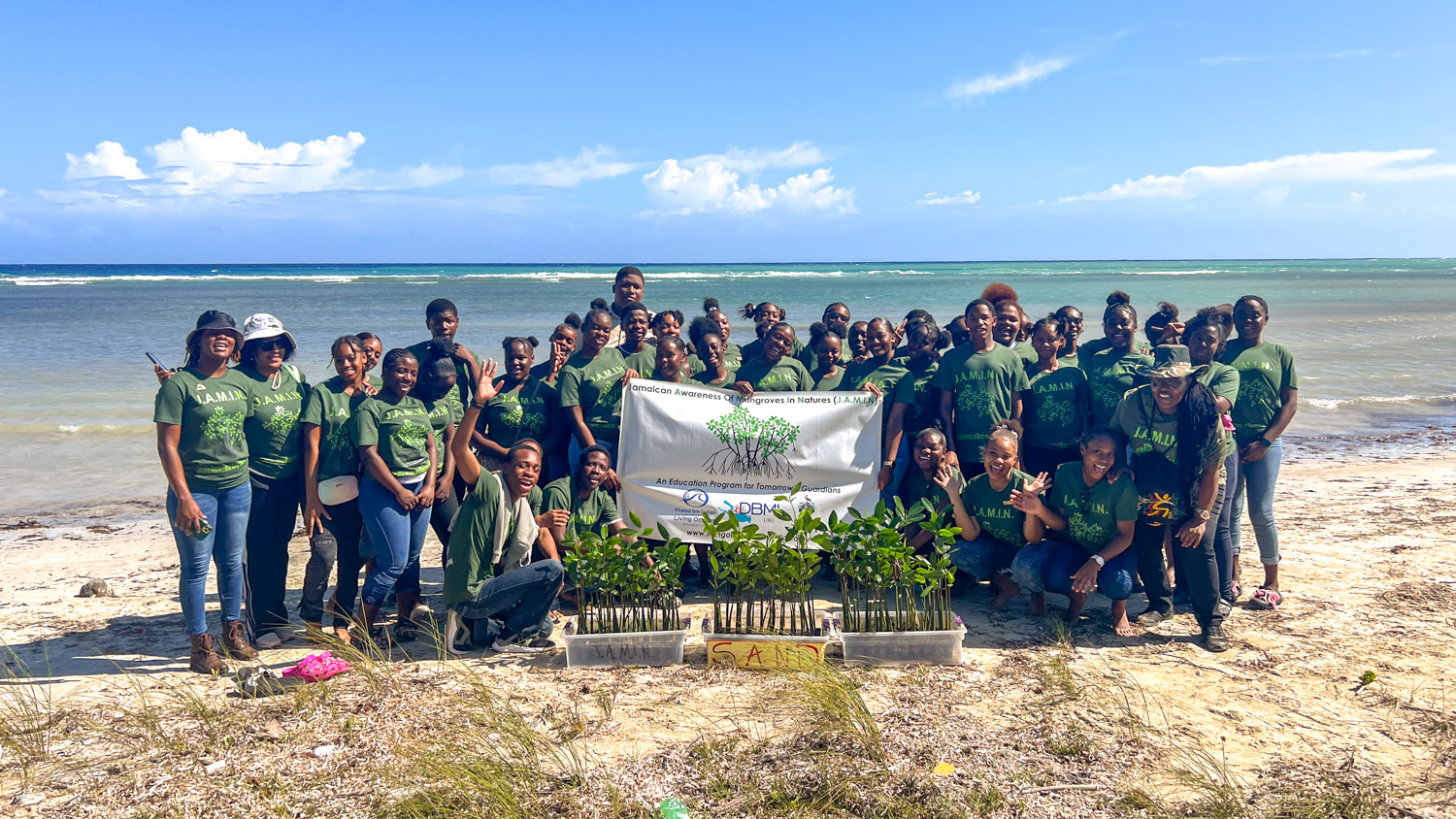
A local conservation effort is proving that young people can make a real difference in preserving Jamaica’s mangrove forests. This year marks the 10th anniversary of the Jamaican Awareness of Mangroves in Nature (J.A.M.I.N.) program, a transformative environmental education program that teaches students about the mangrove ecosystem and how to restore it. A collaboration between the Khaled bin Sultan Living Oceans Foundation and the University of the West Indies Discovery Bay Marine Laboratory (DBML), the program has empowered over 1,000 students to take conservation into their own hands, raised awareness of mangrove conservation in Falmouth and nationally, and planting nearly 2,500 mangrove trees, actively restoring this critical ecosystem.
Mangrove forests are vital to coastal resilience, acting as natural storm barriers, stabilizing shorelines, improving water quality, and providing essential habitat for marine life. However, according to NEPA, Jamaica has lost 2,000 hectares of mangroves in 15 years since 2010 due to deforestation, development, and other human activities—leaving coastal communities more vulnerable to storm surges, erosion, and food insecurity. The J.A.M.I.N. program teaches students about the importance of these ecosystems through hands-on, project-based learning and active restoration efforts.
Amy Heemsoth, Chief Operating Officer and Director of Education at the Khaled bin Sultan Living Oceans Foundation, has been leading the program since its inception. Reflecting on its success, she said, “For the past 10 years, J.A.M.I.N. has not only educated students about mangrove forests but has also empowered them to become active participants in their restoration. Seeing students return to plant the mangrove propagules they’ve nurtured all year is an incredibly rewarding experience. They leave with a deep appreciation for their environment and the knowledge that they can make a real difference.”
Through J.A.M.I.N., students don’t just learn about mangroves—they become stewards of their environment. Over the years, the J.A.M.I.N. program has worked with students from schools across Jamaica, including William Knibb, Titchfield, Port Antonio, Happy Grove, St. Hilda’s, Holland, and Marcus Garvey high schools. Participating students spend the academic year learning the biology and ecology of mangrove forests, conducting scientific experiments, and growing their own mangrove propagules to plant in the wild.
This year’s milestone 10th anniversary coincides with students’ final field trip of the year, where they will plant mangroves at Jobson Bay Eco-Beach Park, a pristine coastal site run by Sea The Change Foundation. Thanks to the generous support of Playa Hotels & Resorts, which covered all costs for this year’s program, students were able to gain invaluable hands-on experience in science and conservation.
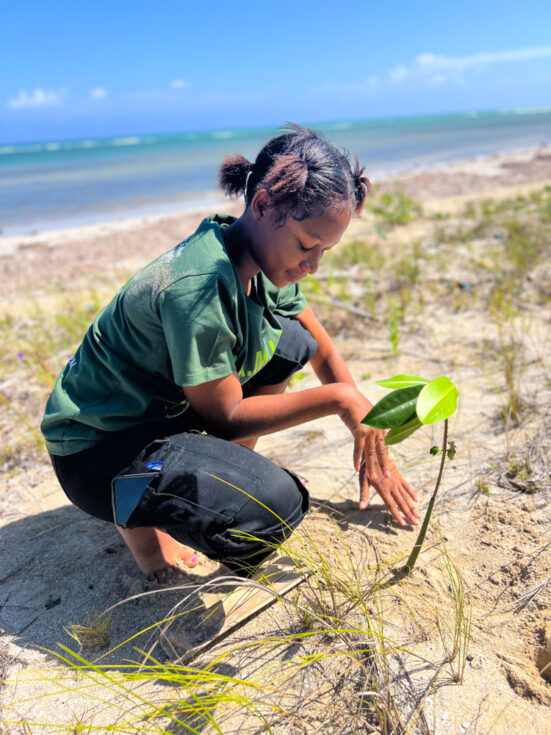
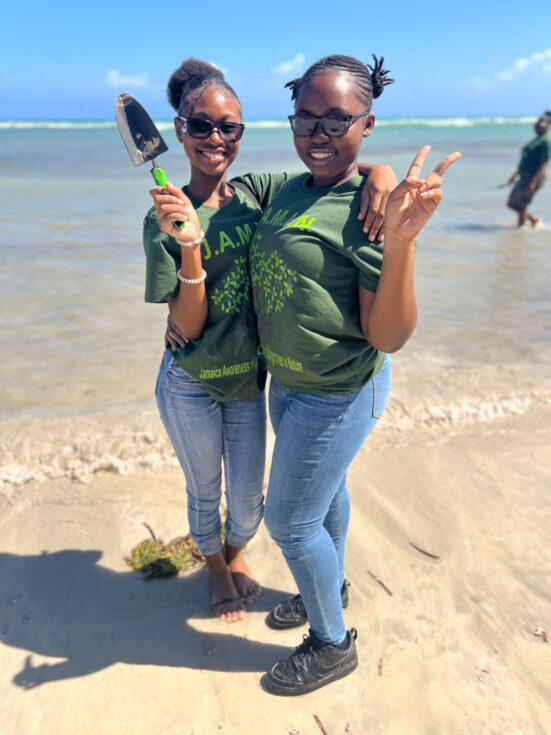
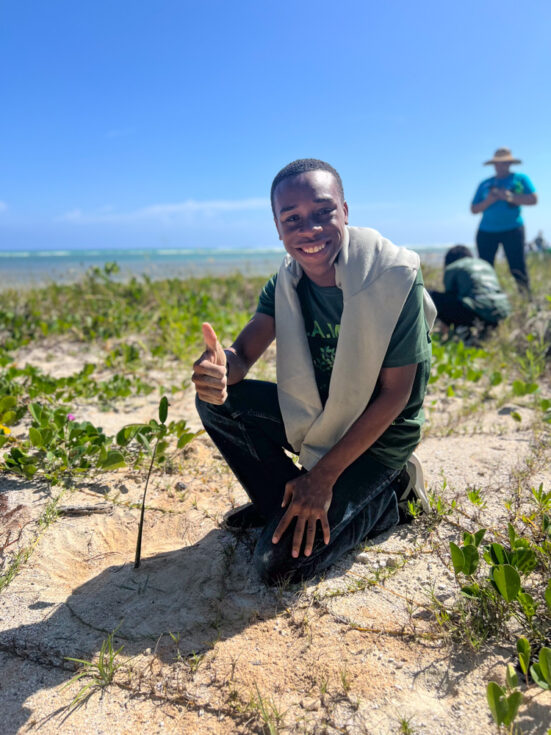
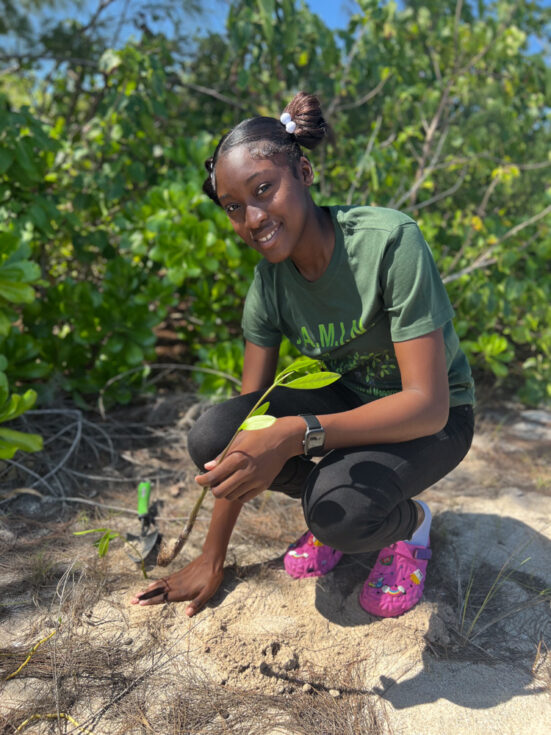
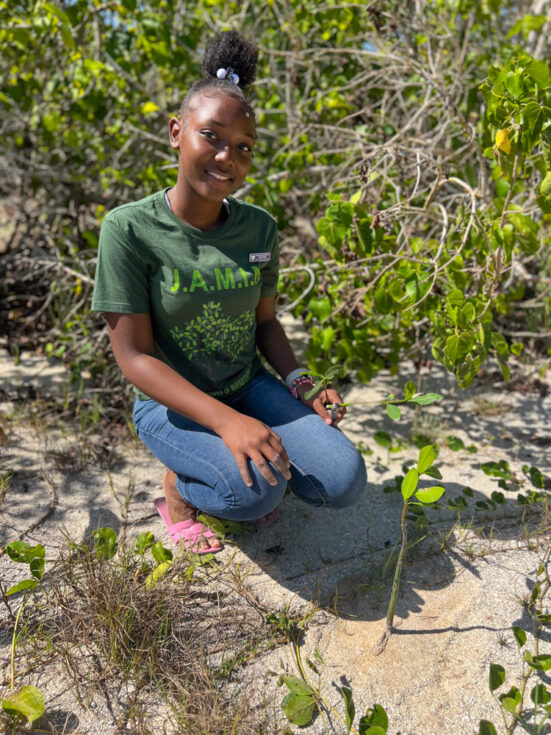
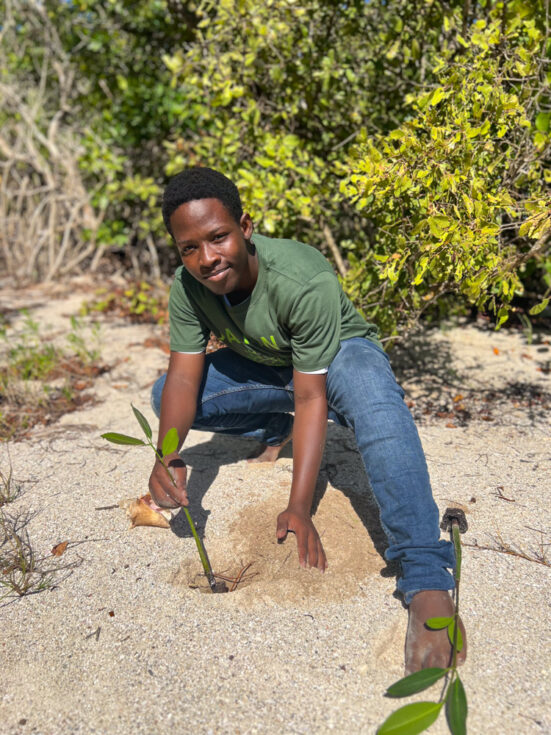
“J.A.M.I.N. has been a game-changer for environmental education in Jamaica,” said Dr. Camilo Trench, Lecturer and Academic Coordinator at DBML, who has been instrumental in keeping the program running over the past 10 years. “By immersing students in the science of mangrove ecosystems and engaging them in conservation efforts, we are fostering a generation of environmental stewards who will help protect our country’s natural heritage.”
One of the educators who has worked with the J.A.M.I.N. program for all 10 years, Fulvia Nugent, a biology teacher at William Knibb Memorial High School, knows the impact this program has had on her students. “J.A.M.I.N. has transformed the way my students understand and appreciate nature. They don’t just learn about mangroves in a textbook— they grow them in our classroom, care for them throughout the year, and then wade into the mud to plant them in the wild. This program has instilled in them a sense of responsibility for their environment and an enthusiasm for science that extends beyond the classroom.”
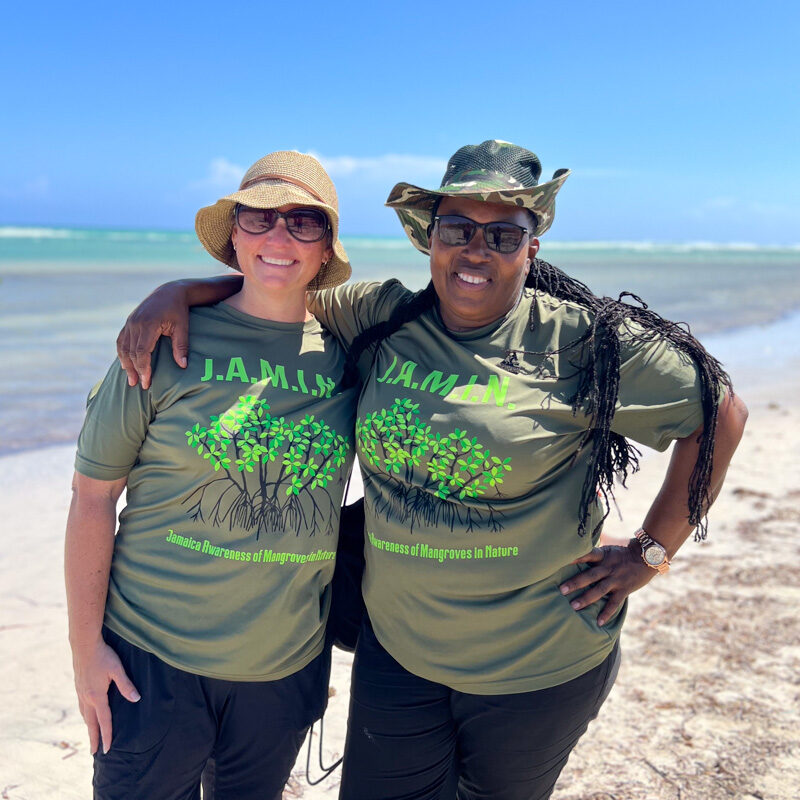
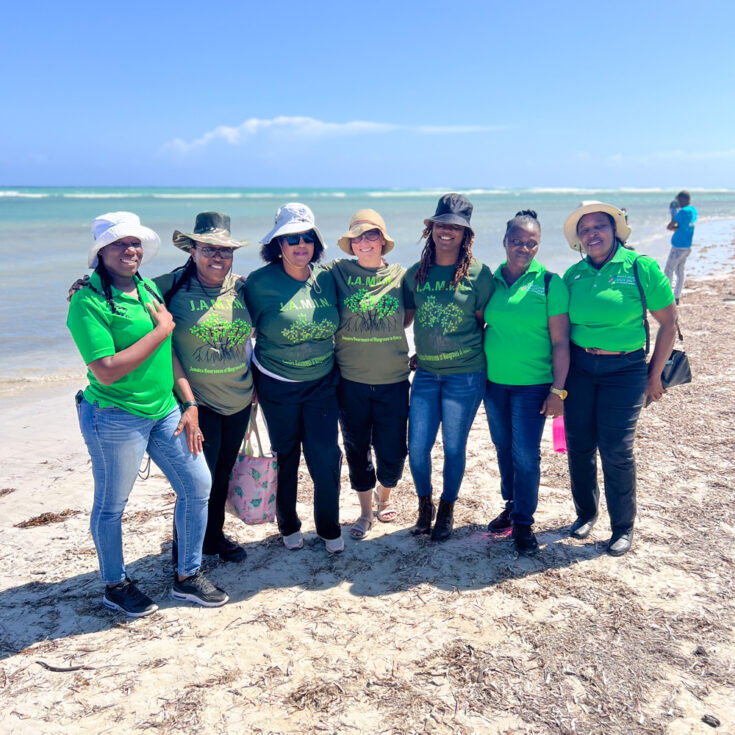
By equipping students with knowledge and hands-on experience, J.A.M.I.N. is shaping future conservation leaders and fostering a deep connection between young Jamaicans and their natural environment. As J.A.M.I.N. enters its second decade, the Living Oceans Foundation and DBML remain committed to expanding its reach. With each new student, each new mangrove planted, and each lesson learned, the future of Jamaica’s mangrove forests grows stronger.
A Look Back at 10 Years of J.A.M.I.N. in Jamaica
A few of our favorite photos from the past 10 years of the Jamaican Awareness of Mangroves in Nature (J.A.M.I.N.) program:
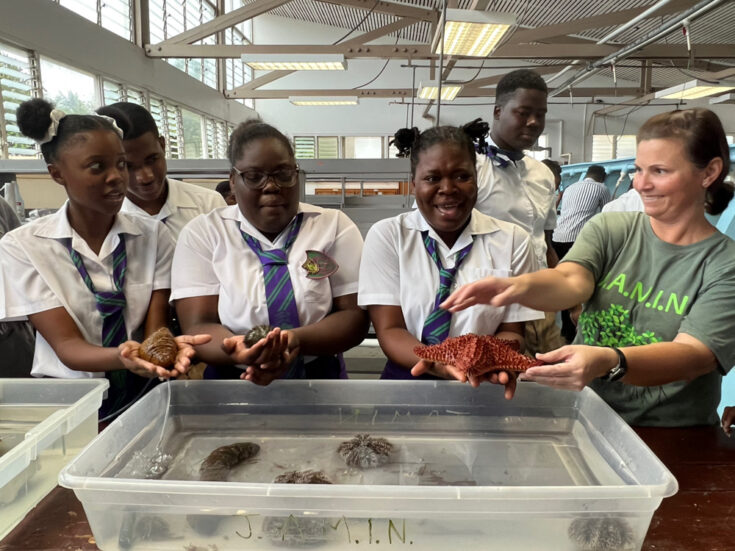
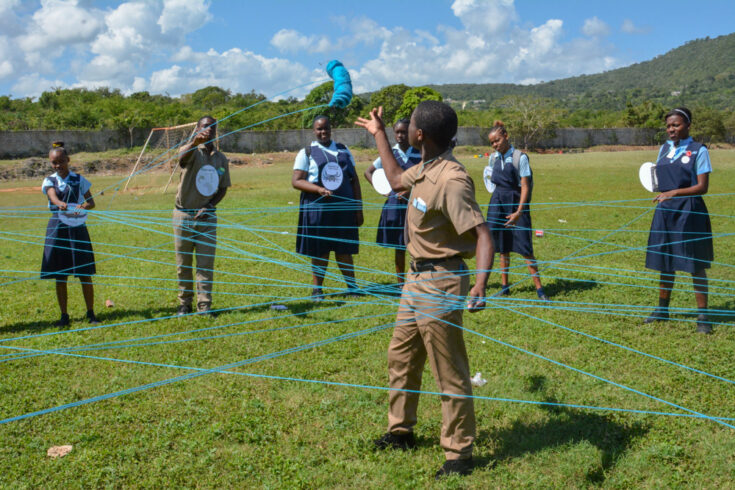
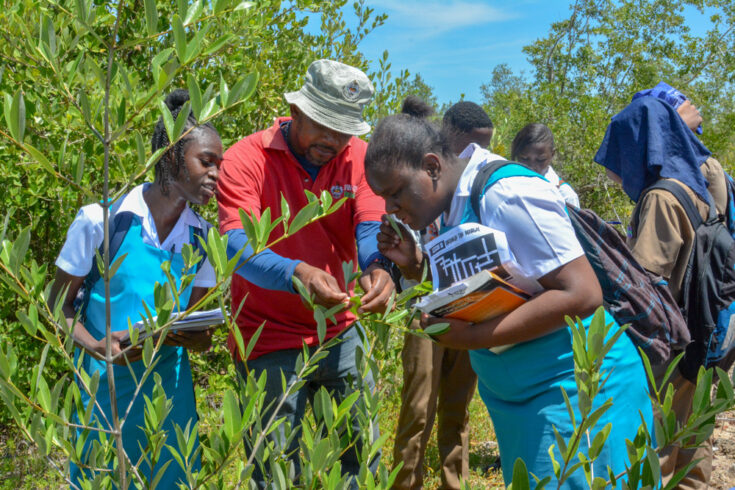
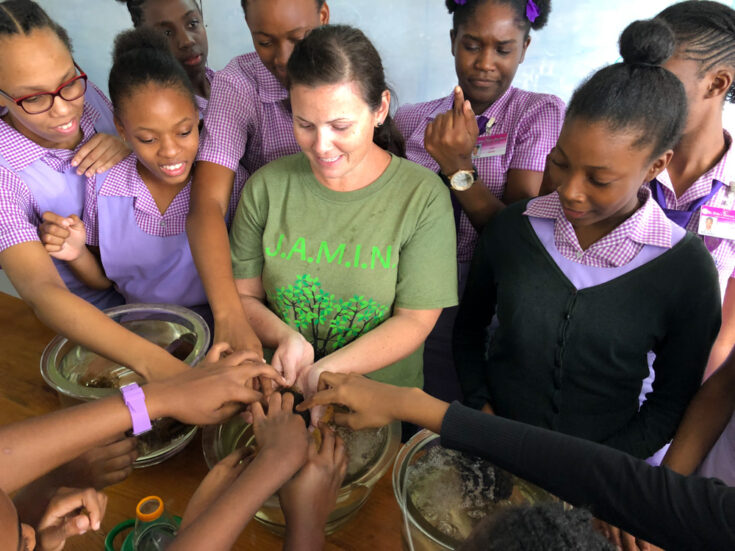
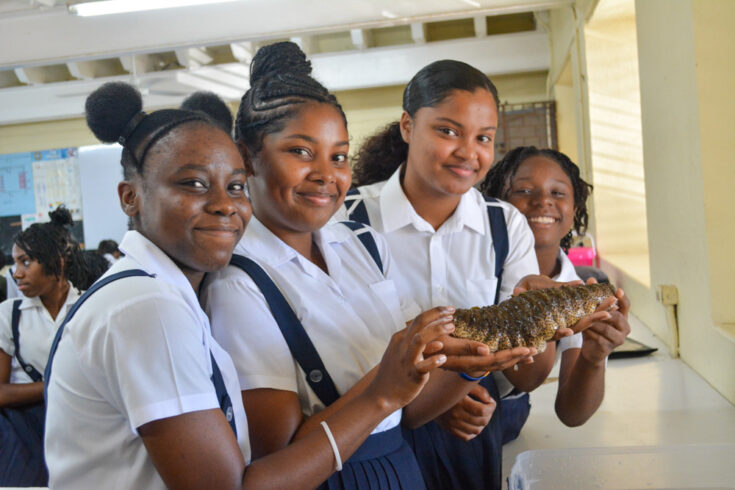
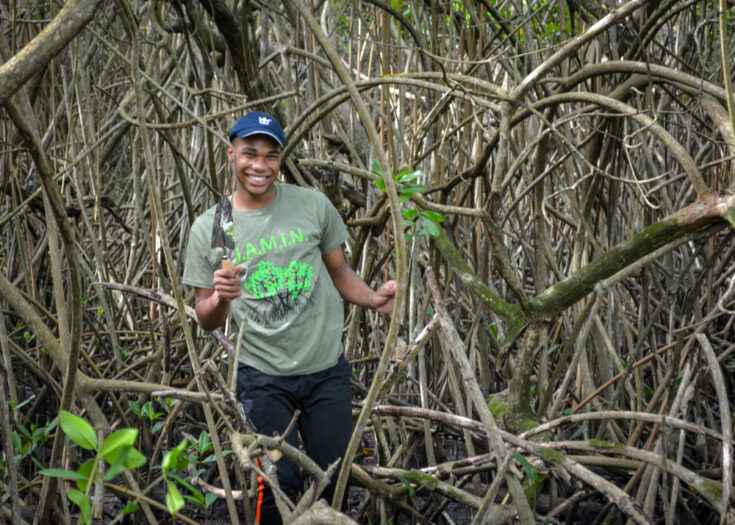
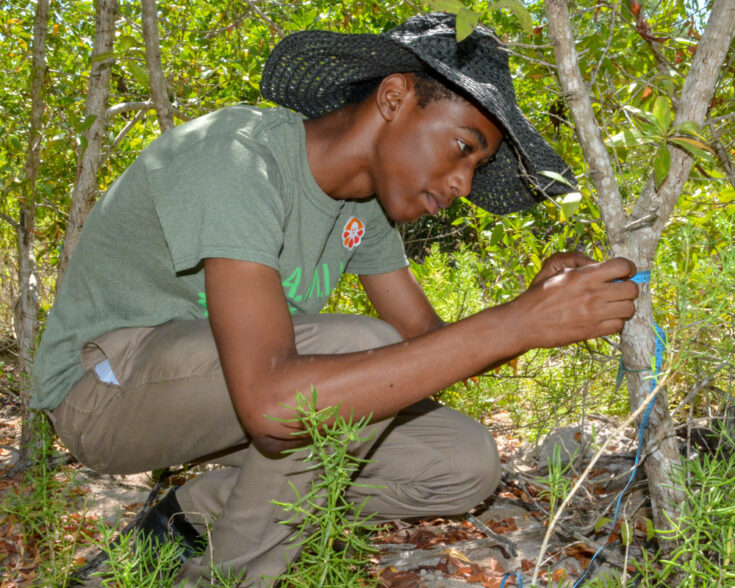
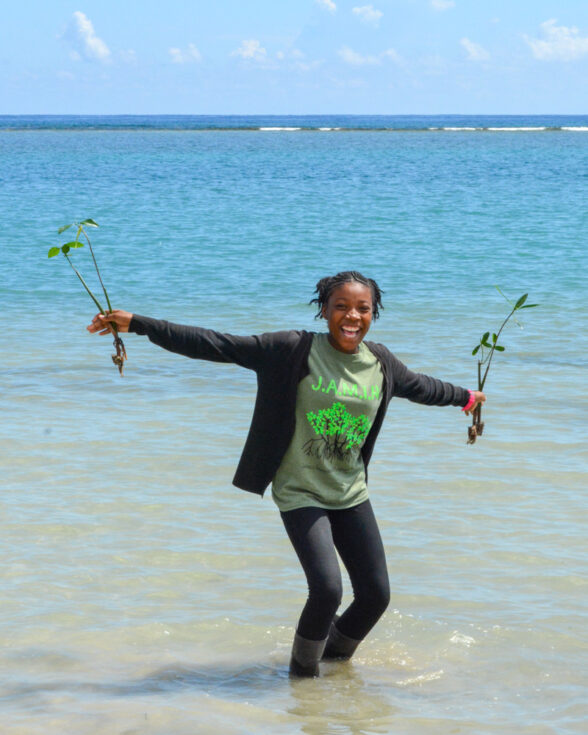
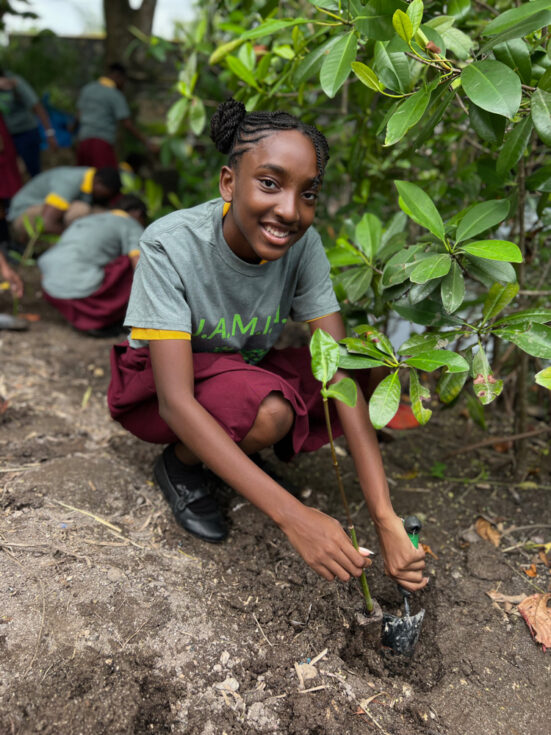
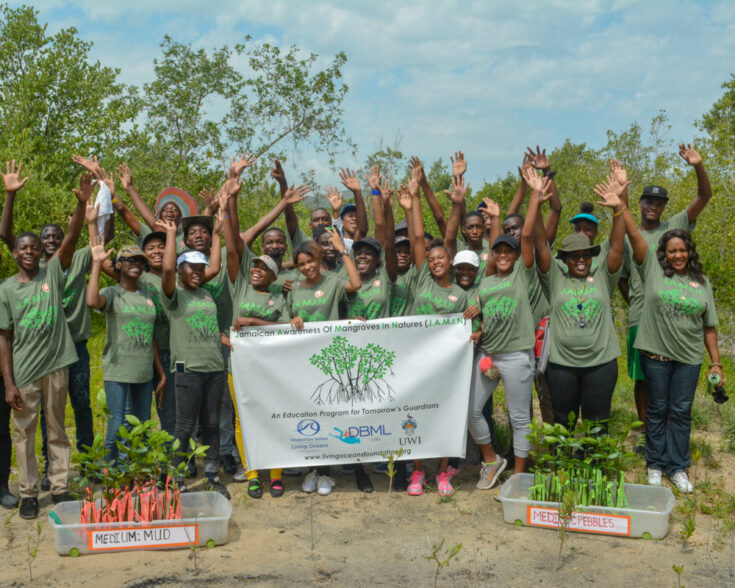
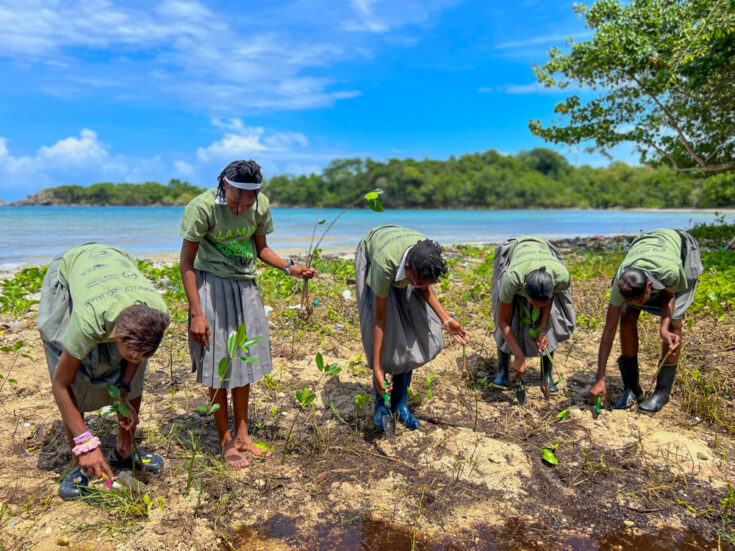
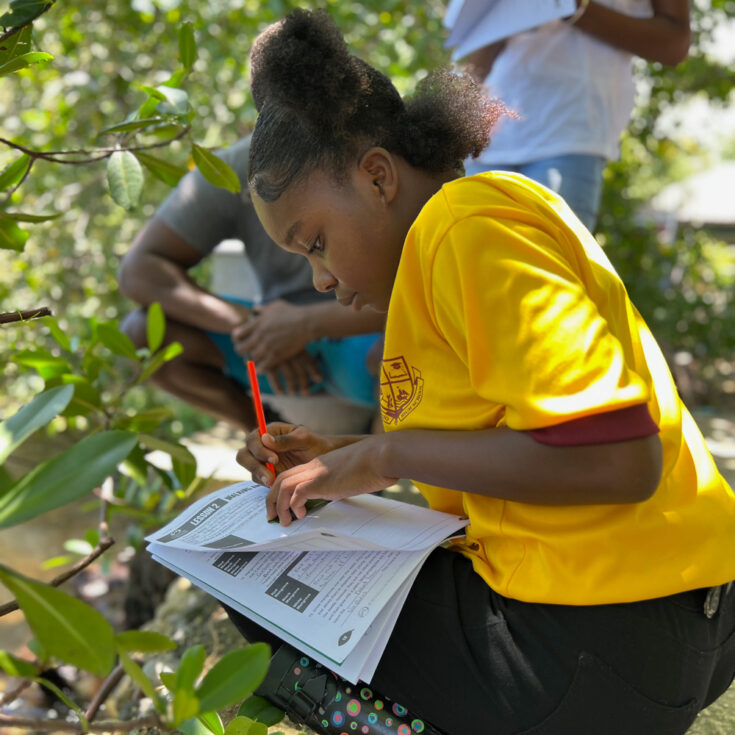

One Comment on “J.A.M.I.N. Program Celebrates 10 Years of Mangrove Education and Restoration in Jamaica”
Jan Baldwin
Amy,
What an amazing turn-around for JAMIN and reaching a younger generation to learn the hard truth about conserving their habitat, especially learning about the value of their mangrove forests.
CONGRATULATIONS!